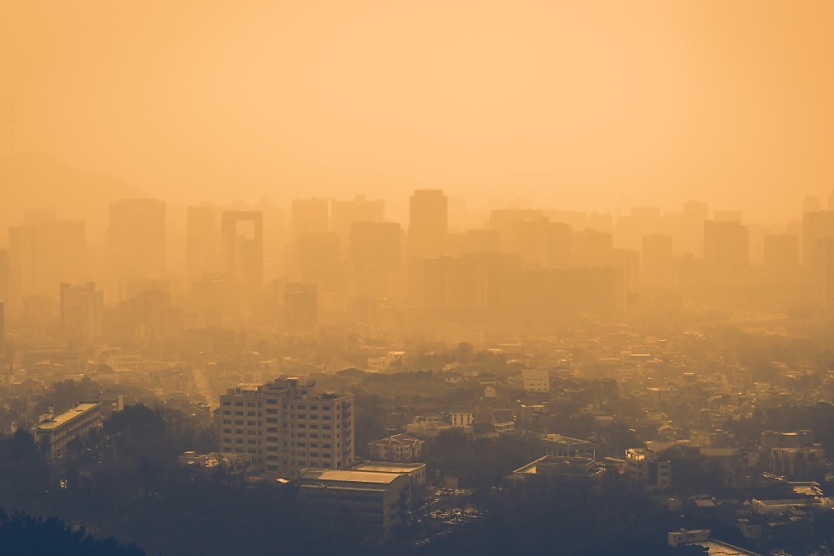The link between air pollution and toxic leadership
SHARE THIS ARTICLE

While it may seem a little far-fetched, recent research has suggested that air pollution can affect the way we manage people, and poor air quality can even manifest itself in toxic leadership.
The research report, titled A Breath of Toxic Air: The Relationship Between Appraised Air Pollution, Abusive Supervision, and Laissez-Faire Leadership Through the Dual-Mediating Pathways of Negative Affect and Somatic Complaints, revealed that the polluted air that rests in cities across the world is responsible for affecting our mood and behaviour and can lead to toxic leadership.
“Air pollution has become a global public health hazard leading to debilitating effects on physical, mental, and emotional health. Management research has just begun to explore the effects of air pollution on employees’ work life. Drawing from the transactional theory of stress and crossover theory,” read the report.
“We argue that appraisal of air pollution is an important factor that influences leaders and their behaviour with subordinates. Specifically, we propose that when leaders appraise severe air pollution, they are more likely to behave abusively toward their subordinates and engage in laissez-faire leadership.”
Health concerns
This is a frightening thought, especially considering that polluted air is inescapable for many, as research revealed that as of 2022, 86.49 per cent of Aussies lived in urban areas. In fact, the urbanisation rate of Australia has reportedly been above 80 per cent since the 1960s.
Meanwhile, the research report highlighted that between 1960 and 2009, air pollution rose by 38 per cent globally.
The hypothesis was tested through a study in India. The researchers claim air pollution resulted in 1.67 million deaths in 2019 alone in India and made up 17.8 per cent of all deaths across the country.
Another study by the World Health Organisation, referenced in the same report, found that 14 of the 15 cities with the highest PM2.5 concentration were found in India.
PM2.5, as described by NSW Health, are “particles with a diameter of 2.5 micrometres or less: these particles are so small they can get deep into the lungs and into the bloodstream. There is sufficient evidence that exposure to PM2.5 over long periods (years) can cause adverse health effects.”
The research report continued: “Exposure to air pollution has become a source of constant anxiety, fear, and frustration for hundreds of millions of people in India, especially in the winter months when the air turns into thick smog. According to newspaper reports, for millions of people working outdoors or travelling to work in the morning, air pollution is often described as a torture where ‘everyday feels like a punishment’. In a newspaper report, an employee described her ordeal as follows: ‘These last three weeks … I was so sick that I couldn’t take it anymore.’”
The effect on leaders
As described in the research report, a link was recognised between air pollution and abusive or laissez-faire leadership. In other words, the diminishing air quality is having an impact on toxic leadership.
The report concluded: “Our study demonstrates that leader appraisals of air pollution are associated with somatic complaints and negative affect. This physical and emotional strain is subsequently associated with leaders behaving more abusively and shirking their responsibilities toward subordinates. Our findings suggest a crossover perspective on pollution, which considerably broadens our understanding of how pollution influences leaders and their subordinates.”
This is a worrying prospect as the majority of the world lives in urban areas. In fact, studies show that around 56 per cent of the world lives in cities, with this number expected to increase 1.5 times to 6 billion by 2045.
Therefore, this is an issue that affects nearly all of us and must be dealt with promptly if we’re to reduce conflict and perhaps death.
What can be done?
While resistance may seem futile, there are practical measures leaders can take to protect themselves and their workforce.
According to the United States Environmental Protection Agency (EPA), leaders can improve office air quality by:
- Not blocking air vents or grills.
- Complying with the office and building smoking policy.
- Watering and maintaining office plants properly.
- Disposing of garbage promptly and properly.
- Storing food properly.
- Avoiding bringing products into the building that could release harmful or bothersome odours or contaminants.
- Notifying your building or facility manager immediately if you suspect an indoor air quality problem.
Similarly, office managers who may have more pull in this department should make sure they:
- Maintain a good working relationship with building management on indoor environmental issues.
- Place office furniture and equipment with air circulation, temperature control, and pollutant removal functions of the heating, ventilating and air conditioning (HVAC) system in mind.
- Coordinate with building management in instances when responsibility for design, operation and maintenance of the ventilation system is shared.
- Establish an effective smoking policy that protects non-smokers from involuntary exposure to secondhand smoke.
- Avoid procedures and products that can cause indoor air quality problems.
- Integrate indoor air quality concerns into your purchasing decisions.
- Work with the building manager to ensure use of only necessary and appropriate pest control practices and non-chemical methods where possible.
- Work with building management and the contractor before you remodel or renovate to identify ways of keeping building occupant exposure to pollutants to a minimum and to ensure that the air distribution system is not disrupted.
- Encourage building management to develop a preventive indoor air quality management program.
Jack Campbell
Jack is the editor at HR Leader.

